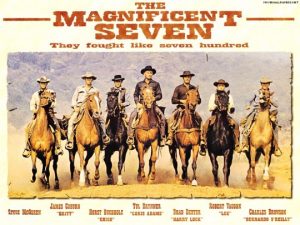 Tuesday, July 31, 2012
Tuesday, July 31, 2012
Candidates for Congress and the Presidency, both incumbents and challengers, tend to talk in generalities. “We need more jobs!!” Really? “If only we could ask the rich to pay a little more,” or from the other side of the aisle, “A recession is no time to increase anyone’s taxes!” Unbelievable, isn’t it. Even when they elaborate in their position statements, the points they make are more likely to be superficial than identify the specific economic tools they recommend and explain precisely how those tools should be applied.
These patronizing political platitudes – Nice alliteration, what do you think? – are blatantly insulting to the electorate. They say more, much more about what the candidate knows than what the voter is capable of understanding. And they are often incorrect, just plain wrong as are both the tax-related arguments I just quoted – something we can talk about in another article. For the most part, candidate policy statements are unadulterated political rhetoric designed to fake sincere commitment to an objective without having the slightest idea what, precisely, to do about it.
Actions, of course, speak louder then words. Most incumbents, if you look at their legislative histories and study the performance of the programs they’ve legislated, have done nothing to promote economic recovery. The vast majority of our elected representatives in Washington, President Obama in particular, lack the imagination and experience to create a job if it fell on them. In any case, most of them are too busy keeping their own jobs to worry about yours. The irony here is substantial. Helping you keep your job should be precisely why they deserve to keep theirs – and that might be true if we pulled money out of the election process.
Remember my rule? Never criticize someone else’s thinking without putting your own ideas on the table. That’s what this series is about. These are the ideas of someone (me) desperate for our candidates, incumbents and challengers, to suggest something specific.
Okay, let’s do this.
Let’s start by defining seven underlying principles against the backdrop of which legislation to encourage economic recovery should be crafted. (“Says who?!” Me, that’s who. You don’t like what I have to say? Leave a comment or start your own blog.)
1. Our national economy is not a monolithic entity. It’s an agglomeration of interdependent local economies that are interconnected by the flow of resources – financial, material and human – in the course of manufacturing, wholesale and retail activity.
2. The economy is huge and, like all very large objects, has great momentum by virtue of its size. Changes in speed and direction occur slowly and only in the face of very substantial forces. Government programs, on the other hand, even at their best, are puny by comparison.
3. The economy is demand driven and all demand begins with consumers. Even when firms are imagining new products and services that won’t be in stores for years, they are motivated by the prospect, if not the current reality, of consumer demand.
Corollary: Economic recovery initiatives designed to encourage businesses to add employees are “supply side” programs and don’t work well for that reason.
4. The economy has many players, people acting in the capacity of consumers or as managers or investors – often the same people acting in different capacities at different times. 300+ million of them. What they have in common is that they are all human and, as such, react to financial incentives and other stimuli in more or less the same way: The more tangible and the more immediate the benefit or reward, the greater the effectiveness of that incentive to affect current behavior.
5. Frame of mind is also very important. Optimism encourages consumer demand and investment.
6. The current recession is not only the result of routine business cycle fluctuations. More importantly, it is also the consequence of long-term changes in the structure of our economy, technologically, geographically and demographically. Simply put, our economy and the world economy of which it is a part are changing. We haven’t kept up, and this extended recession, characterized by its painfully show recovery, is the result of the mismatch between what we are and what we need to be. Fixing these structural problems will take a long time. These notes are about putting people back to work now.
7. Dilution is the enemy of government spending intended to bring about economic recovery. Carefully targeted expenditures, by comparison, that leverage the greater, natural forces of the economy, can have real impact.
Ever wonder why government economic policies don’t work? The answer is a lack of Presidential and Congressional appreciation of one or more of the seven principles I just listed.
The President and Congress come up with some economic policy, spend oodles of money and then wait. If the economy does well, they (Bill Clinton) take credit for it. If it does badly, they (Barack Obama) make excuses. Either way, they have no idea what actually happened. And so it is in Washington. The only new thing is the way President Obama and Congress have started making long-term estimates to pump up the potential total effect of whatever they’re proposing. “This new program will save the American tax payer a trillion dollars over the next trillion years.” I don’t know who they think they’re fooling, other than maybe themselves.
-Next Contestant
The entire series:
Part 1: The Magnificent Seven
Part 2: The Impotence of Monetary Policy
Part 3: Why don’t President Obama’s fiscal policies work?
Part 4: What’s wrong with tax-related fiscal policies?
Part 5: What can we do to encourage a recovery?

